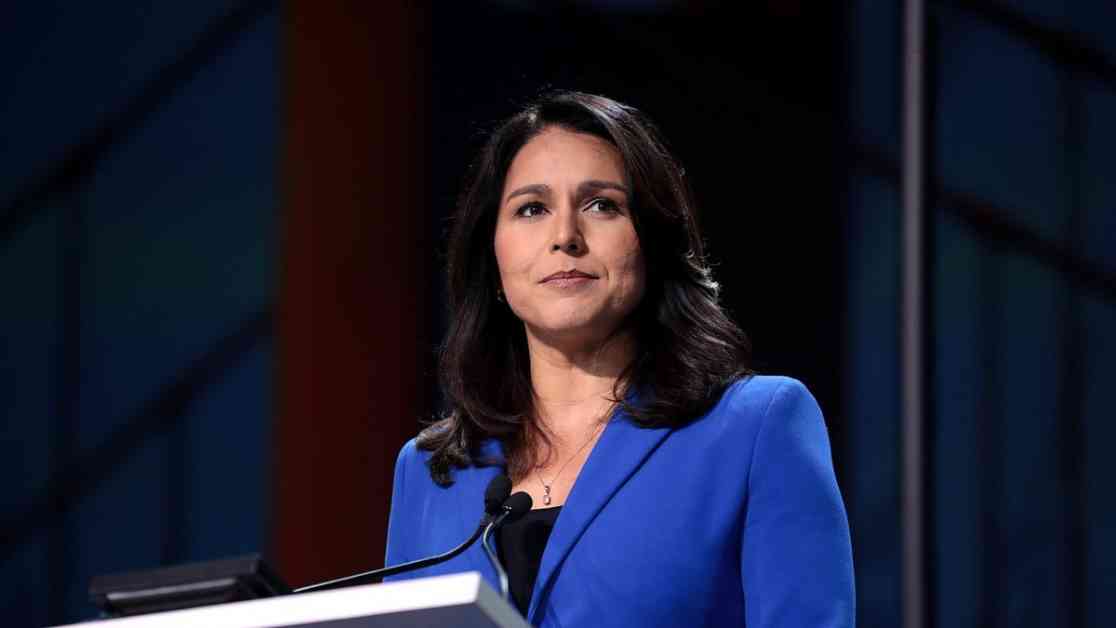President-elect Donald Trump recently announced his nomination of former Democratic House Representative Tulsi Gabbard as the Director of National Intelligence in his upcoming administration. This decision has stirred a mix of reactions and discussions among political circles and the general public alike.
Tulsi Gabbard, hailing from American Samoa, made history as the first practicing Hindu to be elected to Congress when she won the seat for Hawaii’s 2nd District in 2012. Throughout her time in office, she served four terms until 2020. Despite her unsuccessful bid for the Democratic presidential nomination in 2020, she continued to remain active in the political arena.
A notable moment came in 2022 when Gabbard decided to part ways with the Democratic Party, citing concerns about its direction and leadership. She vocalized her views, expressing that the party seemed to be controlled by what she described as an “elitist cabal of warmongers” who perpetuated divisiveness by racializing various issues. This decision marked a significant shift in Gabbard’s political affiliation.
In August 2024, Gabbard made headlines once again by endorsing Donald Trump for President and subsequently joined the Republican Party in the following month. Her background includes military service with deployments in regions such as Iraq, Kuwait, and the Horn of Africa. Currently holding the rank of Lieutenant-Colonel in the United States Army, Gabbard brings a unique blend of political and military experience to the table.
President Trump’s statement regarding Gabbard’s nomination highlighted her reputation for fearlessness and dedication to upholding constitutional rights. He expressed confidence in her ability to lead the Intelligence community effectively, emphasizing the importance of peace through strength. Gabbard, in turn, expressed gratitude for the opportunity to contribute to the nation’s security and freedom in her new role.
As discussions unfold surrounding this nomination, it raises questions about the potential implications of having someone with Gabbard’s background and political journey in such a critical position. Her crossover from the Democratic to the Republican Party adds an interesting dynamic to the current political landscape, showcasing the complexities and nuances within the realm of national security and intelligence.
Overall, Tulsi Gabbard’s nomination as the Director of National Intelligence under the Trump administration marks a significant development in both her career and the broader political landscape. With her diverse background and experiences, she brings a unique perspective to the table as she prepares to take on this pivotal role. As the transition unfolds, all eyes will be on Gabbard as she navigates this new chapter in her public service journey.














